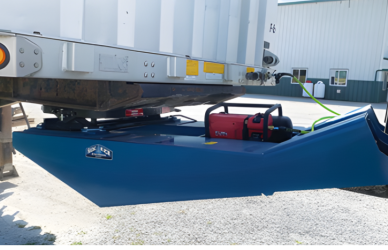Indicating the independent contractor status for truck driving companies may become more difficult, as reported by Truckinginfo.com. In January 2021, Trump’s administration established a novel definition for independent contractors but thev, under the Fair Labor Standards Act, has proposed a revision of the Trump-era definition. The proposal was officially released to the Federal Register on Oct. 13 and will be open to public comment until Nov. 27.
The proposal, a 184-page document titled the Notice of Proposed Rulemaking (NPRM), is anticipated to increase the difficulty of illustrating drivers’ independent contractor status.
The existing definition centered on two factors that the NPRM is pushing back against: a worker’s chance for both profit or loss and the nature and level of control over the work. The NPRM has introduced four other factors and aims to have an equal emphasis on all six factors when defining an independent contractor. The proposal aims to adopt a wholistic view, simultaneously reversing the priorly established emphasis on practice over possibility.
These factors combined will make it challenging for companies to establish an independent contractor status in their drivers. It is not all bleak for trucking companies; however, the Department of Labor has recognized that they do not have the jurisdiction to enforce an ABC test, which is the strict independent contractor definition used in some states.
This ABC test demands that for a worker to be an independent contractor they must be, “free from the control and direction of the hiring entity in connection with the performance of work… perform work that is outside the usual course of the hiring entity’s business, and (be) customarily engaged in an independently established trade, occupation, or business of the same nature as that involved in the work performed,” according to the Labor & Workforce Development Agency.
The second requirement is particularly hard for trucking companies and their drivers to meet, prompting the labor department to consider codifying an ABC test.
“Codifying an ABC test would establish a far simpler and clearer standard for determining whether workers are employees or independent contractors … and substantially reduce the risk of worker misclassification,” the Labor Department states in the NPRM.
The Department of Labor does not believe that it can legally adopt any iteration of an ABC test.
The proposal also explains that previously, in purview of the Supreme Court, the classification of a worker’s status was dependent on The Economic Realities Test. This test assesses if the worker is dependent on the company which they provide service to.
Additionally, the Court previously held a wholistic view of work activity in determining a worker’s status, contrary to the regulations established by an ABC test.
Greg Feary, a transportation attorney, recognizes that the Department of Labor could only rely on an ABC test if the Supreme Court readdressed its precedents or if Congress amended the Fair Labor Standards Act. Feary does not believe this will happen. He also does not believe the Supreme Court would side with such a broad interpretation like the one in the FLSA.
Continuing, the NPRM states that every instance of control should be considered when deciding a worker’s status. Feary said that this breaks from judicial precedent, and that in the past, courts held that companies requiring certain behaviors from workers, including adherence to laws, rules, and regulations, was not synonymous with control.
“But this proposed rule says, ‘no, no, no, that should be taken into consideration,’ and it should be legitimate to consider safety and customer requirements are part of the equation … And in a highly regulated industry like trucking and transportation, it’s problematic,” Feary said.











